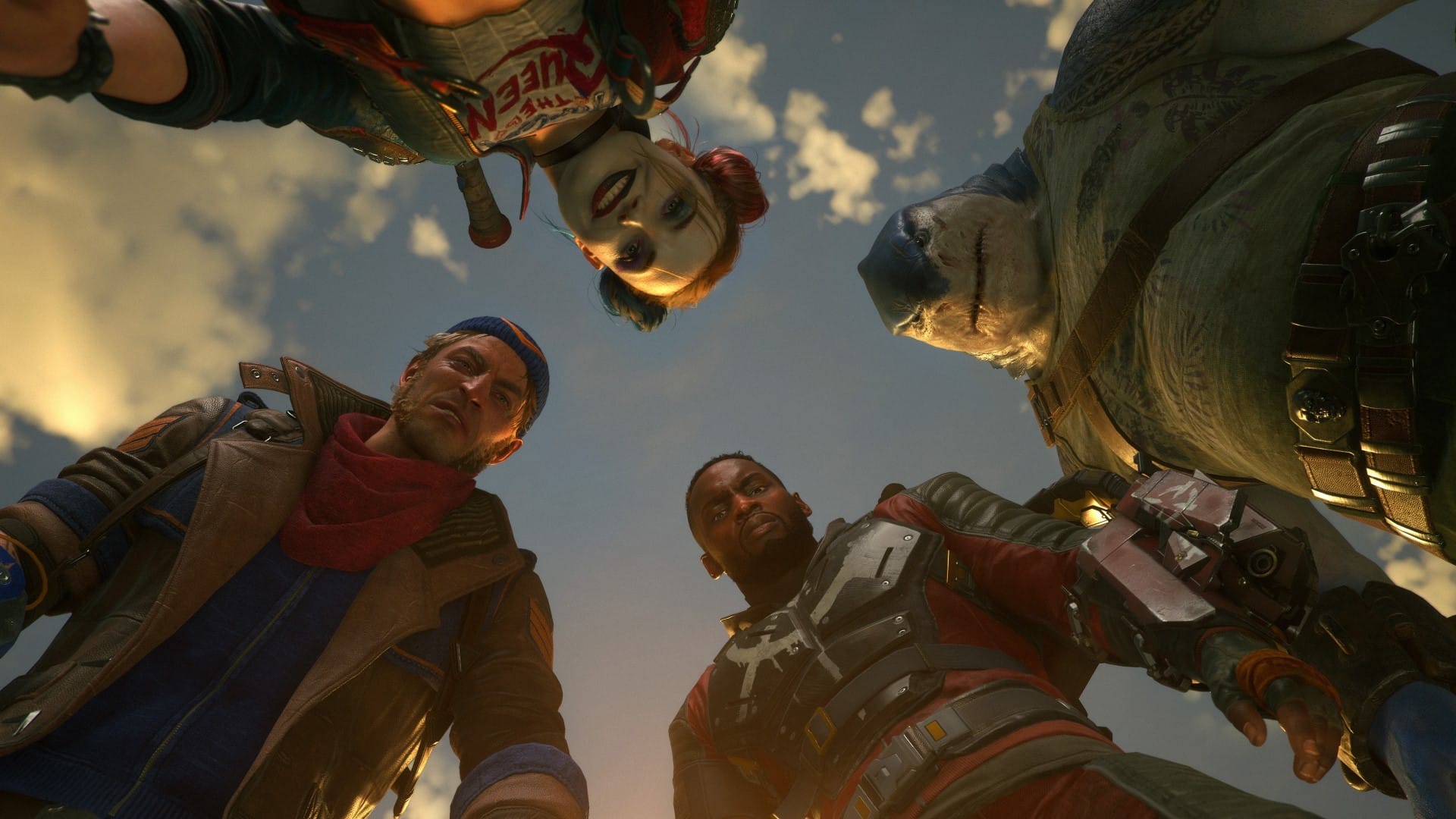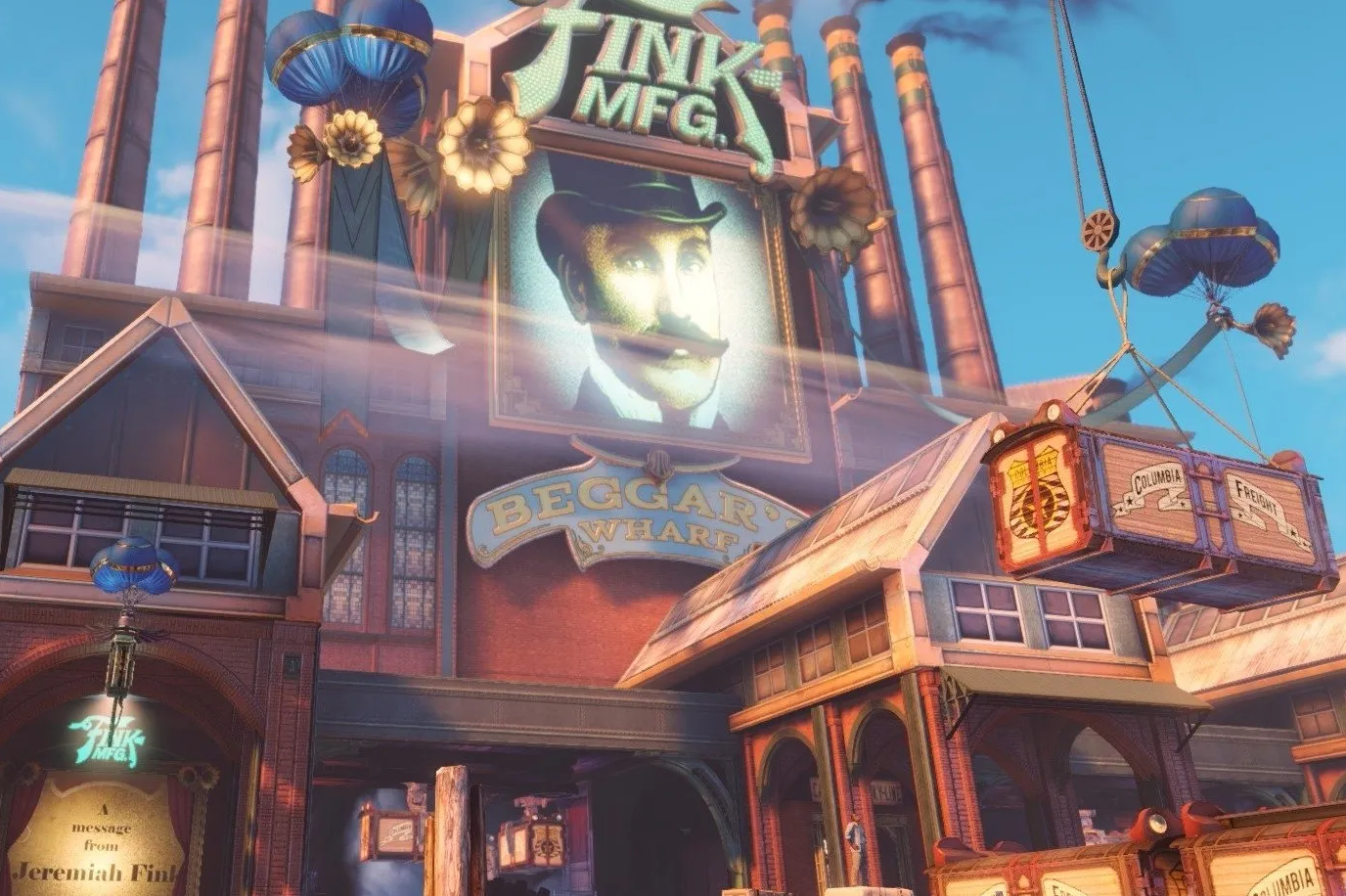Jason Schreier did as Jason Schreier does last week and published a behind-the-scenes look at the making of a big-name game, full of wild revelations from sources that did not want to be named in the article because these are the kinds of bombshell stories They don't want You to know.
The game in question was Suicide Squad: Kill the Justice League, and the article told the shocking story of a celebrated development studio tried to branch out beyond its wheelhouse and realized that it wasn't as good at that new thing as the thing they've been doing to tremendous acclaim for the past decade or more.
"Leadership didn't seem worried, they say, even as other traditionally single-player game studios that chased the live-service trend were delivering abysmal results with games such as Anthem (which earned a lowly score of 59 out of 100 on Metacritic), Marvel's Avengers (67 out of 100) and Redfall (56 out of 100)." — Schreier notes in his Suicide Squad feature that BioWare, Crystal Dynamics, and Arkane likewise struggled to reproduce their single-player success in a live service world.
Suicide Squad’s problems with creative direction at the highest levels that were so bad, even the rank-and-file developers could clearly see the pitfalls they were headed straight for. There was some chasing of trends, some organizational mismanagement, key leaders who had a hand in everything but didn't seem to know what game they were making, resulting in frequent changes that wasted a bunch of work.
"Levine would tell his staff to overhaul large chunks of levels or sections of the city, seemingly at a whim, based on what he thought would be best for the game. Every cut or change Levine made had trickle-down effects for the lower-level designers, artists, and programmers. It was demoralizing to put weeks of your life into something only to watch it get flushed down the drain." – In his book Press Reset: Ruin and Recovery in the Video Game Industry excerpted by Polygon, Schreier details a lot of the same complaints from developers who worked on BioShock Infinite at Irrational Games.
Schreier noted that Suicide Squad also suffered from "a culture of rigid perfectionism" at Rocksteady that aggravated the studio's other problems.
"Shooting a sack of grain in Uncharted 4 would cause the sack to deflate as barley poured out of it. Shining a flashlight at Ellie's face in The Last of Us led her to blink and turn away. Those details exist because Naughty Dog has built a culture of perfectionism, where games have to be great, no matter the human cost." – Schreier, in a 2020 Kotaku feature on the development of The Last of Us Part 2.
And even as the troubled project limped down the home stretch, studio leadership was confident it would all come together at the last minute.
"Within the studio, there's a term called 'BioWare magic.' It's a belief that no matter how rough a game's production might be, things will always come together in the final months. The game will always coalesce. It happened on the Mass Effect trilogy, on Dragon Age: Origins, and on Inquisition... Even when a project feels like a complete disaster, there's a belief that with enough hard work—and enough difficult crunch—it'll all come together." – Schreier's Kotaku feature on Anthem.
OK, so maybe the revelations in the Suicide Squad feature weren't quite as wild as the lead made it sound. If this feature feels a bit formulaic at this point, it's not because of the things Schreier had control over; the writing, the reporting, the facts included, and the context given. The problem was in the story itself, because it's a story we've seen time and time again in the AAA game space, and one Schreier has told himself more than a few times.
In fact, the behind-the-scenes game dev story is so formulaic at this point, I'm more interested in the parts of the formula that weren't included here, specifically the rampant crunch (of the kind detailed in Schreier's 2018 Red Dead Redemption 2 feature) or sexism (as in the feature he wrote about Ubisoft in the wake of public allegations about the company culture).
The absence of such complaints doesn't necessarily mean these things weren't present, but given how these complaints have fit the formula we're talking about in the past, perhaps we can be cautiously optimistic about their omission here.
Those angles aside, the fact that these studio tell-all features have started to feel so same-y says less about the journalist reporting them and more about how mundane this kind of dysfunction is in AAA game development. That's why the stories behind flops like Anthem and Suicide Squad can sound so similar to the stories behind hits like The Last of Us Part 2, BioShock Infinite, and Mass Effect, and it's why the people in charge of a team making the former can convince themselves they're actually making the latter until it's too late.

In a lot of ways this is simply how many AAA games are made, and this dysfunction no more guarantees a flop than a rational and efficient development process guarantees a hit.
Again, none of this is to take away from the work of Schreier, who has built his career on a valuable form of in-depth reporting that is not so regularly done in this field, and is vital given the industry's absolute disdain for any amount of transparency. His stories, however, are accounts of what happened behind the scenes, but they don’t explain why one game is good and successful and another is poor and a flop. Together they paint a picture of practices endemic to the industry.
Even if these stories don't stand out as singularly massive scandals or all start to blend into one another, I think there's still value in these kinds of stories. Because if the goal is to actually produce meaningful improvements in the way the industry makes games to reduce the amount of human collateral damage—and it really should be—blockbuster reporting on industry-shaking scandals doesn't really go as far as you might hope.
I'm thinking here of the sexism scandals we've seen around Riot Games, Ubisoft, and Activision Blizzard over the past six years or so, each of which was either sparked or furthered by investigative reporting. We've seen some accountability in the form of multimillion-dollar lawsuit settlements, executive departures, and even criminal investigations, and that's not nothing. But in each case, the accountability has stopped short of the people most responsible for fostering corporate cultures where indefensible behavior was tolerated and even protected.
Riot co-founders Brandon Beck and Marc Merrill are still with the company in leadership roles. Yves Guillemot is still CEO at Ubisoft, if you can “belYves” it. And while Bobby Kotick is no longer running Activision Blizzard, it's hard to take a look at how much he made from the $70 billion sale to Microsoft and think this represents comeuppance of any sort.
As much as some people might have made a big show of how they would no longer support such companies (and let's go ahead and say every last one of them followed through for the sake of argument), it didn't really make a difference. Ubisoft and Activision Blizzard both set new bookings records in the years since their scandals broke, so whatever negative impact the scandals may have had was more than offset by the masses of people who either never heard about them, or figured it wasn't a big enough deal to impact their purchasing decisions.
I'm convinced now that there is no story so earth-shattering, so horrifying, so diligently researched and expertly told that we could Upton Sinclair's The Jungle our way to a better games industry. Even Sinclair's landmark novel—informed in part by his first-hand experiences with the shockingly unsanitary and brutal working conditions in Chicago's meatpacking industry—didn't have the impact he wanted, despite it prompting popular outcry that ultimately led to the creation of what is now called the US Food and Drug Administration.
Sinclair understood it wasn't his heartbreaking depiction of how capitalist structures enforce and exploit hopeless poverty that moved people; they were just grossed out at the idea of workers falling into the meat grinders and winding up in their food.
"I aimed at the public's heart, and by accident I hit it in the stomach." – Sinclair, on the response to The Jungle.
Much of The Jungle is about the exploitation of the poor more broadly, but it was the meatpacking bits that resonated most strongly because while people generally dislike systemic abuse of the poor, they find fingers in their hotdogs infinitely more distasteful.
So while public outcry and the "vote with your wallets" crowd might have moved the needle in early 20th century meatpacking, it's not going to be effective in the modern games industry because there's no equivalently distasteful byproduct of these scandals that impacts the end user. (And that's not for lack of trying, given the industry has already forced gambling, DRM, and planned obsolescence into games over the objections of players, who eventually grew to just accept it all.)

The industry's ongoing switch to digital effectively makes a surprise worker's finger in the end product even more of an impossibility (except in cases of $300 collector's editions, where an honest-to-goodness developer body part might be seen as a feature rather than a bug).
All that is to say I've lost a bit of faith in the power of one sensational story to bring about meaningful change. After all, journalism can't fix problems directly; it can only bring them to light, at which point the people and institutions that actually do have the power to hold others to account are supposed to kick in and do their job. And as you may have noticed, many of those people and institutions seem to have taken the past decade off.
So what can bring about meaningful change? It's not particularly sexy, but I think a better understanding of the common causes of these problems absolutely helps, and like water wearing down stone, that understanding is more likely to be driven by a continuous drip of stories like the Suicide Squad feature than one big splashy piece about the Worst Studio Ever.
It's easy for an executive to look at stories like Activision Blizzard or Riot Games and learn absolutely nothing, or come away thinking they are doing a good job because they aren't actively overruling HR to protect a studio co-head accused of sexual harassment, or because they aren't farting in employees' faces.
I imagine it's harder for them to brush aside the drumbeat of stories about the Suicide Squads and Anthems of the world because what went on in those studios is not particularly sensational. It's the same kind of people in the same kind of roles making the same kind of mistakes over and over.
So how do things get better? Well, here's the concluding paragraph of the initial draft of this article I submitted:
"Assuming the creative directors running these studios aren't completely obtuse (just go with me here), there's only so many times you can see so many different peers stepping on the same rakes for the same reasons before you start watching where you put your own feet."
Originally, that was the end of the article. To which my editor here Rob Zacny took a page from Return of the King and said, “That was great, but what if it had more endings?”
Signing up is free!
By signing up—again, it costs nothing!—you can read the rest of "Old News from the Latest Disasters," and receive free newsletters and emailed articles from Remap!
Sign up now Already have an account? Sign in